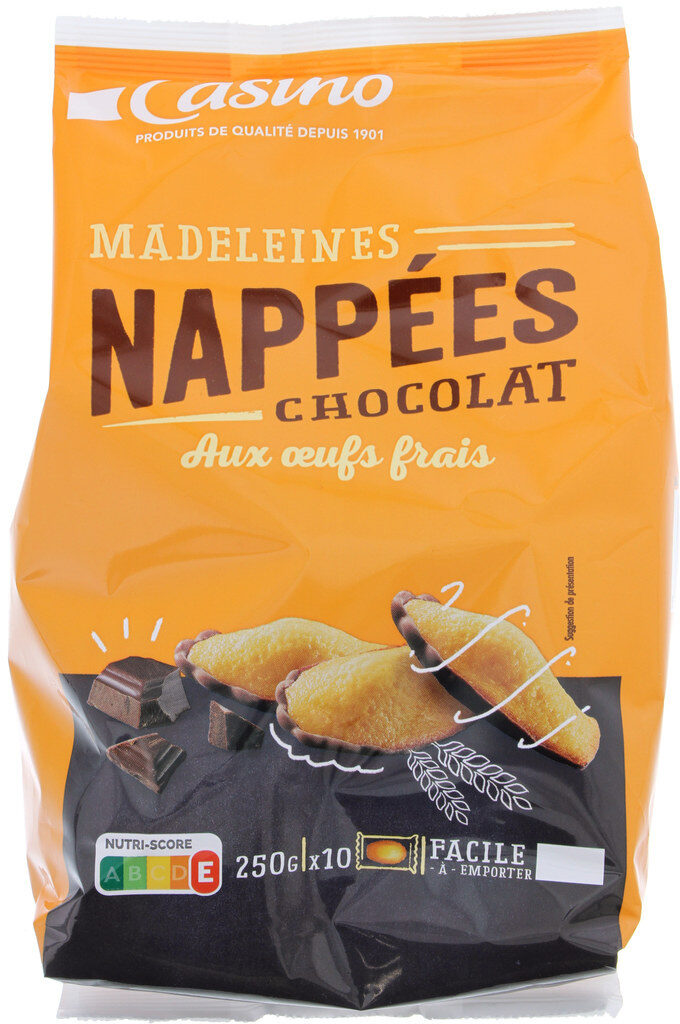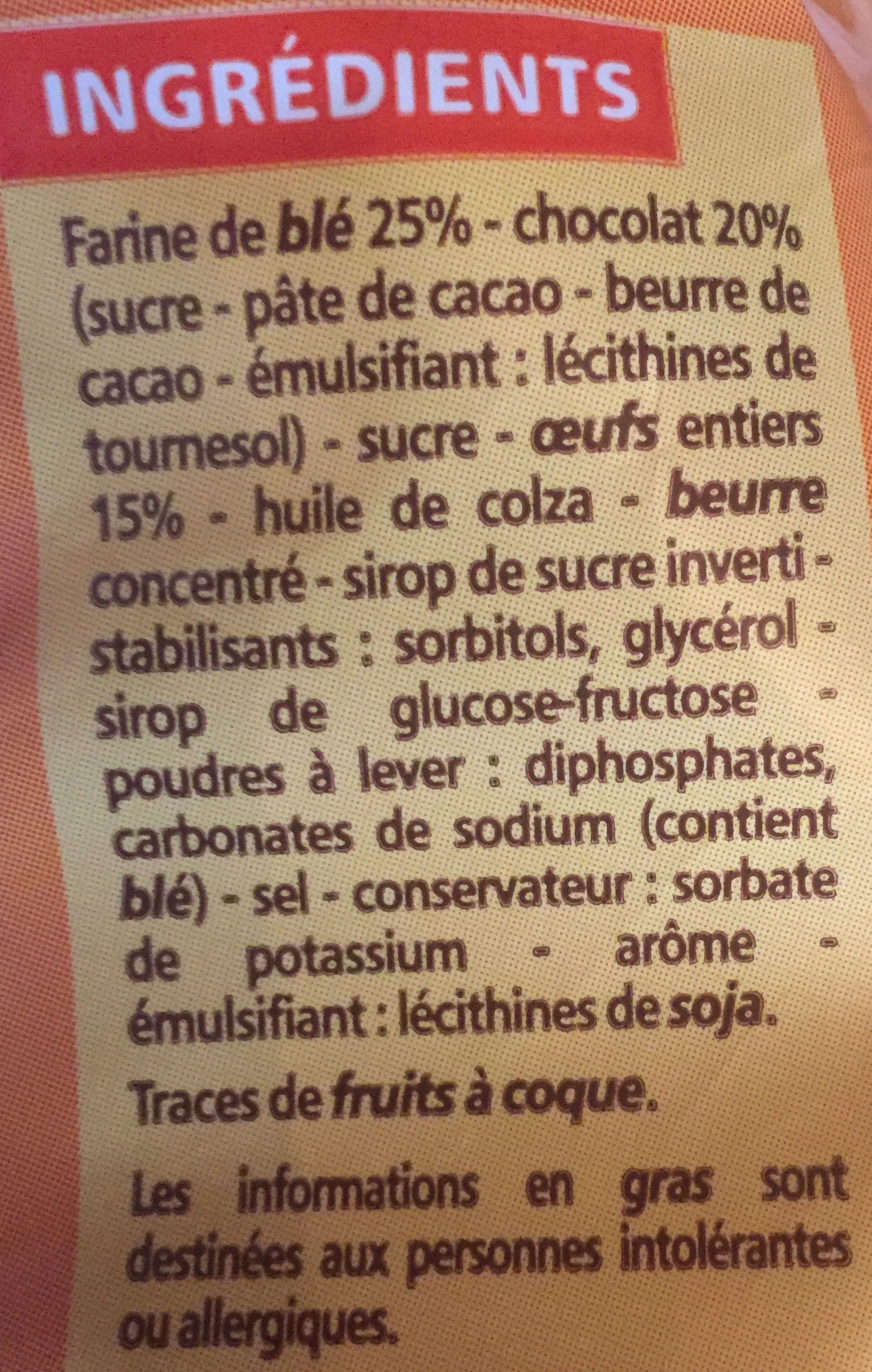Madeleines nappées chocolat - Casino - 250 g
This product page is not complete. You can help to complete it by editing it and adding more data from the photos we have, or by taking more photos using the app for Android or iPhone/iPad. Thank you!
×
Some of the data for this product has been provided directly by the manufacturer casino.
Barcode: 3222476752536 (EAN / EAN-13)
Common name: 10 Madeleines nappées au chocolat
Quantity: 250 g
Brands: Casino
Categories: Snacks, Sweet snacks, Biscuits and cakes, Cakes, Chocolate cakes, Madeleines, Chocolate madeleines
Labels, certifications, awards: Nutriscore, Nutriscore Grade E
Stores: Casino
Countries where sold: France
Matching with your preferences
Environment
Carbon footprint
Packaging
Transportation
Other information
Conservation conditions: A conserver à l'abri de la chaleur et de l'humidité.
Recycling instructions - To discard: Sachet plastique à jeter
Report a problem
Data sources
Product added on by kiliweb
Last edit of product page on by alexfauquette.
Product page also edited by casino, casino-off, openfoodfacts-contributors, org-casino, segundo, teolemon, yuka.VElvUElmUW4vY3NVdVBBdzNUYlFwTU5RbWFTT0RXT1pOZm9zSVE9PQ.








